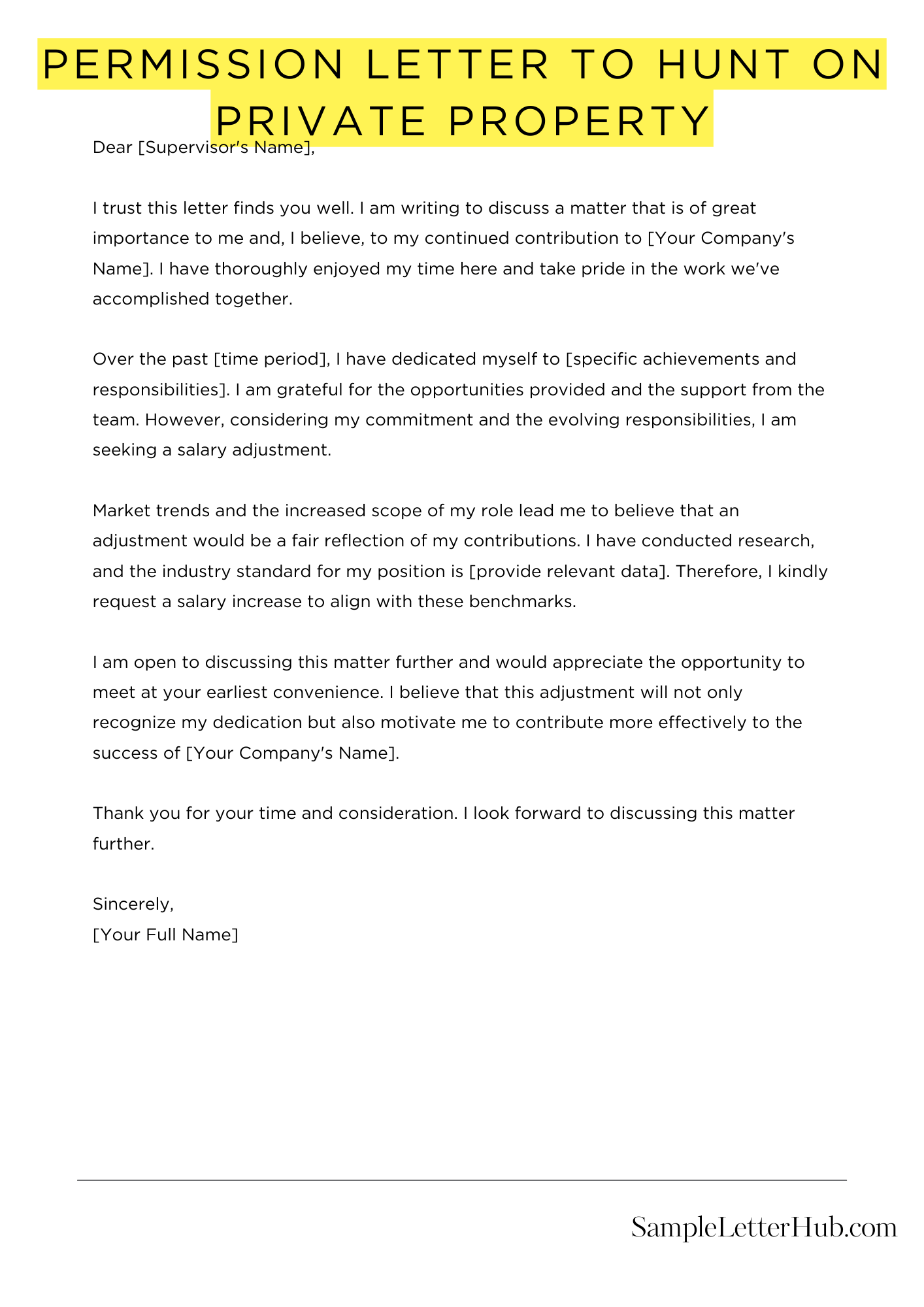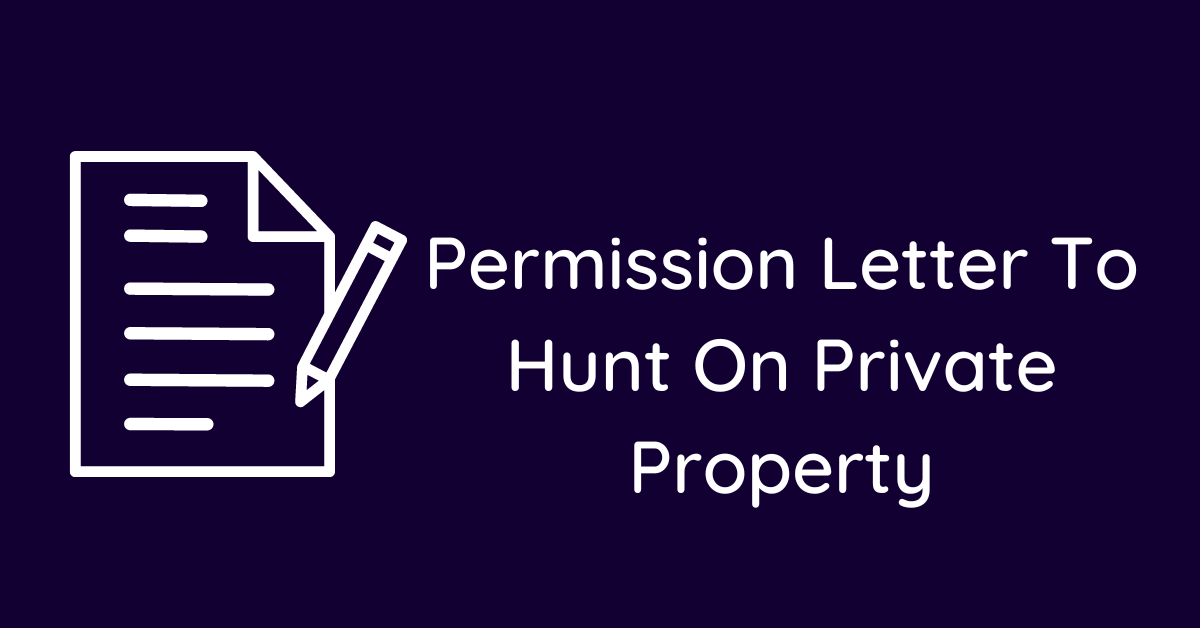Permission Letter To Hunt On Private Property is a written document that gives permission to hunt on private property. It is important to get permission from the landowner before hunting on their property, as it is trespassing to hunt without permission.
In this blog article, we will share templates/examples/samples of Permission Letter To Hunt On Private Property. These templates will make it easy for you to write your own permission letter. We will also provide tips on what to include in your letter and how to get it signed by the landowner.
By using our templates and following our tips, you can easily get permission to hunt on private property and avoid trespassing charges.
Permission Letter to Hunt on Private Property
Dear Mr./Ms. [Landowner’s Name],
I am writing to request permission to hunt on your property located at [property address]. I have been an avid hunter for many years and am respectful of the land and wildlife.
I understand that hunting is a privilege and I would be grateful for the opportunity to hunt on your property. I am familiar with the hunting regulations and will adhere to all safety precautions.
I am willing to provide proof of my hunting license and insurance upon request. I am also willing to follow any specific rules or regulations you may have regarding hunting on your property.
I would be available to hunt on your property during the following dates:
* [Start date] to [end date]
* [Specific days of the week]
I would be happy to discuss my request further with you at your convenience. Thank you for your time and consideration.
Sincerely,
[Your Name]

How to Write a Letter to Hunt on Private Property
If you’re a hunter, you know that getting permission to hunt on private property can be a great way to access new hunting grounds and increase your chances of success. But how do you go about writing a letter to a property owner to ask for permission to hunt? Here are a few tips:
- Be polite and respectful. Remember, you’re asking someone for a favor, so be polite and respectful in your letter. Introduce yourself and explain why you’re interested in hunting on their property.
- Be specific about what you’re asking for. Don’t just ask for permission to hunt; be specific about what you’re asking for. For example, you might ask for permission to hunt deer, turkey, or other game animals.
- Offer something in return. Most property owners are more likely to grant permission to hunt if you offer something in return. This could be something as simple as offering to help with chores around the property or providing the owner with a portion of the meat you harvest.
- Be persistent. Don’t be discouraged if you don’t get a response right away. Follow up with the property owner a few weeks later to see if they’ve had a chance to consider your request.
By following these tips, you can increase your chances of getting permission to hunt on private property. Just remember to be polite, respectful, and persistent, and you’ll be more likely to find success.
FAQs about Permission Letter To Hunt On Private Property
What information should be included in a permission letter to hunt on private property?
The permission letter should include the hunter’s name, address, and phone number; the dates and times of the hunt; the location of the hunt; the type of game being hunted; and the name and contact information of the landowner.
How do I get permission to hunt on private property?
To get permission to hunt on private property, you should contact the landowner and ask for permission. You can find the landowner’s contact information by searching online or by asking at the local courthouse.
What are the benefits of hunting on private property?
Hunting on private property can provide a number of benefits, including:
- Access to better hunting grounds
- Fewer crowds
- More control over the hunting experience
What are the risks of hunting on private property?
Hunting on private property can also pose some risks, including:
- Trespassing
- Injury or death
- Damage to property
What should I do if I am denied permission to hunt on private property?
If you are denied permission to hunt on private property, you should respect the landowner’s decision and not trespass. You can try to find another hunting location or you can contact the local wildlife agency for assistance.

